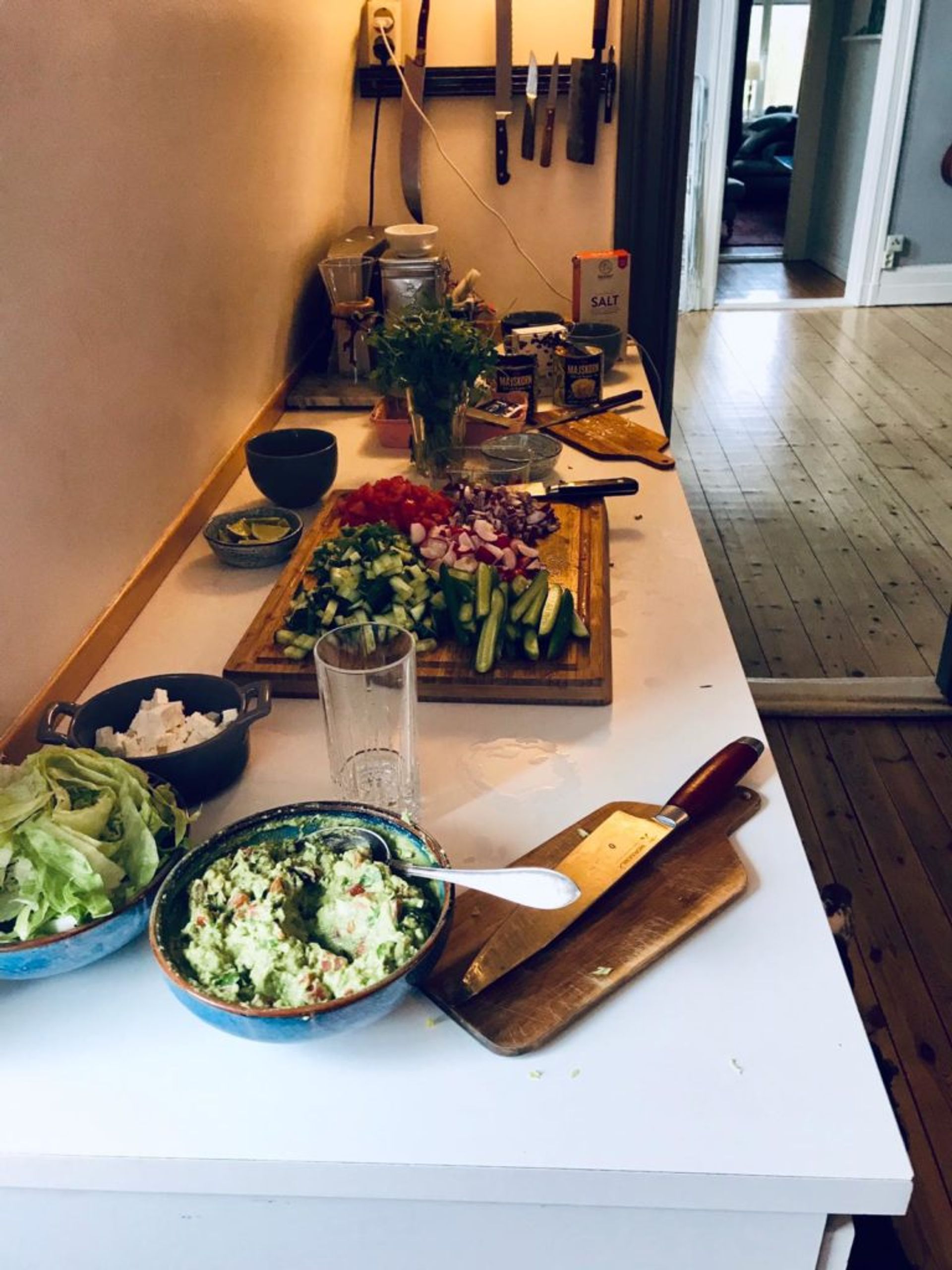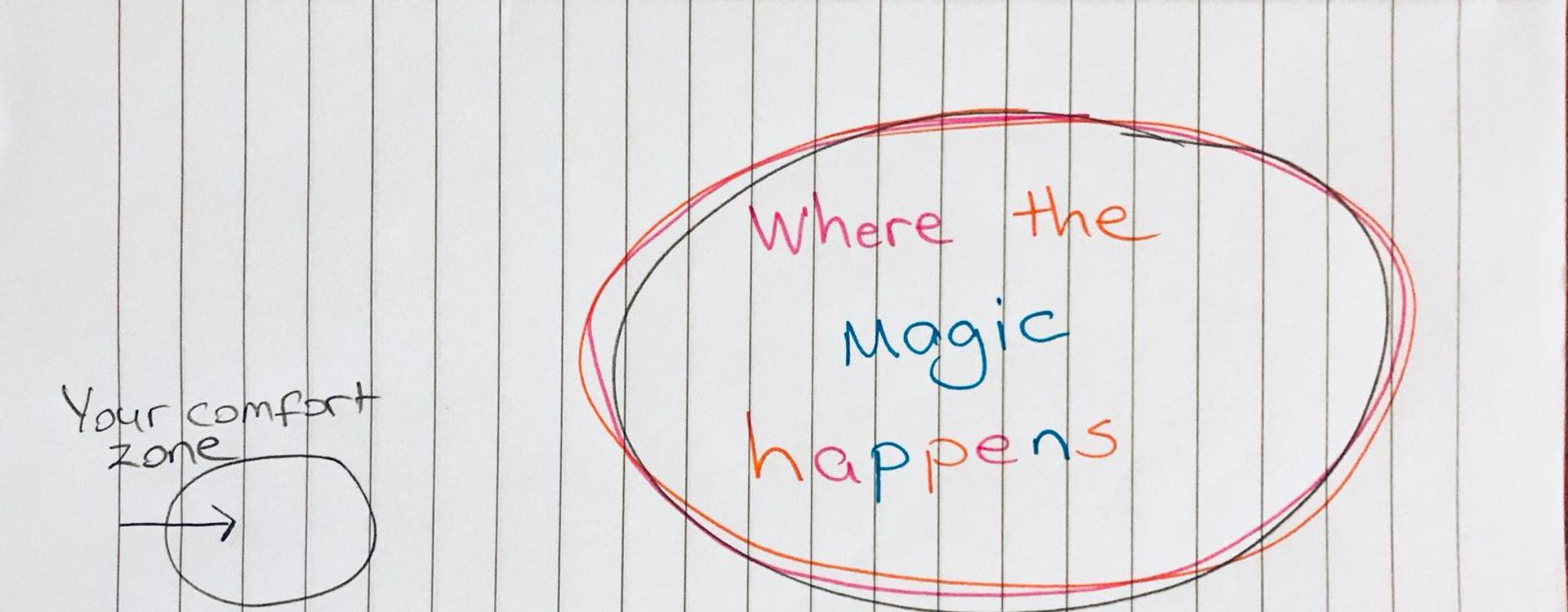
Written by Hazal
14 May 2019
Here we are. Soon, I will be done with my first year in Sweden. Time flies! I can’t believe that I am taking the last course of the year. Currently, my classmates and I are preparing a magazine related to migration and our lovely city Norrköping. This course called ‘Critical Cases in Ethnic and Migration Studies’ is a great opportunity to reflect what we’ve learned all year.
Finally, it’s springtime and summer is around the corner. The sun is shining down on the water. The warm breeze strokes my hair. The cherry blossoms are in full bloom. Time to breathe in, relax and appreciate the gifts of life. But how to relax while deadlines, tasks, and responsibilities are floating inside of my head?

The academic quality is high in Sweden. So are the expectations. The good news is hard work pays off. Being an international student is challenging in a good way. It also can be stressful. My fellow ambassador Coco’s blog post about her study process while writing her thesis will give you lots of tips to reduce stress. Also, there are many other ways to lower study stress.
1. Stay organized
It is important to make sure that you are organized. You can create a to-do list and put it on somewhere it can easily be seen. Relying on memory is not the best thing to do when your mind is already occupied with hundreds of different tasks. Unfortunately, I don’t have a memory of an elephant. So, what do I do to remember? I set lots of reminders on my smartphone. Birthdays, deadlines, apply for an extension of residence permit, call your mom, return books you borrowed from the library and more. These notifications save my day. When you have a hectic schedule, planning your day or week helps a lot!

2. Healthy diet
Eat well, feel good! Most of the time, my classes started at 9 or 10 am. If I have a morning class, I always start a day with a good breakfast. Sometimes quick oatmeal with season fruits and sometimes a plate full of cheese and vegetables. A well-balanced diet helps you save your energy all day. It was interesting for me to discover how people in Sweden have good nutrition and healthy eating habits apart from high sugar and coffee consumption. Eating a healthy diet is simple. There is a salad buffet almost in every supermarket. Restaurants offer many delicious and healthy dishes on their menu. Of course, no food is better than cooking your own meal. Don’t forget to keep fruits and veggies in your diet. Also, drinking enough water is another key point for your health.
My fellow ambassador Usisipho wrote a very helpful blog post about sustainable food shopping.

After all, foods help you feel better!
3. Exercise
Being a master student requires you to spend a lot of time to sit and read. However, I have never been the type of person who can stay for a long time without exercise. One of the first things I did when I moved to Sweden was to get a membership at the gym. I go to one of the largest gyms in the town. I pay SEK 350 per month with a student discount. They offer various group classes such as functional training, jumping, dancing and yoga. Everyone is welcomed in group classes; there is no gender or age limit to join. All classes are taught in Swedish. In the beginning, I asked instructors to help me with translation. They were always helpful for me to follow classes. After a while, I didn’t need any help because I had already memorized all the moves. It was a piece of cake! Also, it is possible to work out individually with different types of equipment too. Exercise is one of the greatest ways to boost my mood!
If you are looking for a gym Jesús’ Quick Guide to Gyms in Sweden will help you.

It’s totally OK not to be a gym person. There are many other ways to be active without going to the gym. It is very common to spend time in nature and enjoy outdoors in Sweden. If you hit the streets on a Sunday afternoon, you will see people running, jogging and walking around. For most people in Sweden, physical activity is a part of the daily routine. Clearly, being physically active has many benefits for both mental and physical health.
4. Get enough sleep
Getting enough sleep plays an important role in your wellbeing. Our body needs time to recover and recharge. Sometimes, I find myself study until late hours. Then, I remind myself of the importance of sleeping well. Especially during the winter when days are darker and shorter, sleeping becomes more significant. Every time I sleep well, I feel more energetic and happier. Currently, the days are lighter and longer in Sweden. Even though it feels magical to see the light when I look at the sky at 10 pm the sudden shift from dark winter to a light spring might be confusing for the body. That is why it is essential to get enough sleep.
According to the study ↗️ by Stress Research Institute at Stockholm University, sleep in on weekends have a good impact on health. That’s perfect! Now, I don’t need to find excuses to stay longer in bed on weekends!

5. Relax
If you are a student, it is inevitable to find yourself stressed about essays, group projects or presentations. No matter how busy you are self-care is important. It is not a luxury, it is a need. Deep breathing, meditate, balanced healthy diet, exercise… They all help you feel good. It is necessary to make time for relaxing and recovering. I always go for a walk in a forest to appreciate the tranquility of nature and spend some time alone. Also, listening to music helps me relax. This Spotify list ↗️ is my favorite mixed house music for relaxation.

A friend of mine recommended an app for me to practice a personal meditation. Headspace ↗️ is a fun and easy app offering short sessions to meditate and live mindfully. There are many themed sessions related to stress, sleep, and anxiety. It helps me learn more about how to reduce daily stress and stay focused.
5. Ask for support
Lastly, if nothing is helpful to lower your study stress and anxiety, do not hesitate to ask for support. Sometimes it feels good to talk with a friend or family. Sometimes, we might need more guidance. All of the universities have a student health center to help students for a healthier lifestyle. In my university, last month the student health center organized a workshop about procrastination and work block. I look forward to the upcoming workshops.
How do you deal with study stress? Do you have any suggestion? Let me know in the comments below.





